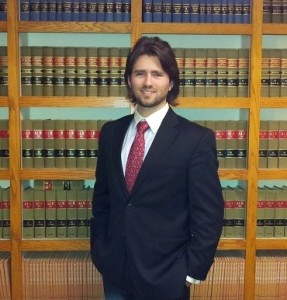Providence Wills and Trusts — Charlotte and Weddington Revocable Living Trust Attorney — Give Us A Call To Start A Free, No Obligation Conversation About Your Estate Planning Needs: (704) 288-4700
The Revocable Living Trust, sometimes known simply as the Living Trust, has been growing more and more popular in recent years. This makes sense, given the benefits offered by a Revocable Living Trust over a simple will. In short, a Revocable Living Trust protects your privacy, saves money, eases the burden of estate administration on your family, and most importantly, allows you to establish a “financial parent” who will manage the money for your kids until they are ready for the responsibility. Enhanced versions of the Living Trust do even more to protect your kids’ inheritance, including Bloodline Protection to keep the money from going to outsiders and Asset Protection to guard against predators, creditors, divorce, lawsuits, and even bankruptcy. To fully understand the advantages of a Revocable Living Trust, it is necessary to understand the typical process of administering an estate without a trust (usually referred to as the “probate process”).
This Is What Happens If You Die In North Carolina Without A Revocable Living Trust
When a person dies with (or without) a will but without a Revocable Living Trust, the person named as executor of the estate must go to the court house for the county in which the deceased person (called a decedent) lived and petition the Clerk of Superior court to probate the will and appoint the executor. The executor is then responsible for the host of tasks that must be done to administer the estate, including publishing notice to creditors, collecting the decedent’s property, collecting outstanding debts, paying any debts the person owed to others, and providing inventories and accountings to the Clerk of Superior Court.
Depending on the size and complexity of the estate, this can be a colossal task. Most executors need to hire an attorney (and many also need an accountant) to help navigate the minefield of administering an estate, which can get expensive very quickly. These fees, along with the executor’s commission, routinely consume 5% or more of the total estate value.
This means that:
- An estate worth $150,000 will pay up to $7,500 in executor, attorney, and accounting fees;
- An estate worth $500,000 would pay up to $25,000;
- A an estate worth $1,000,000 would pay up to $50,000.
In addition to attorney and accountant fees, the State of North Carolina charges a fee for administering the estate. Currently, the North Carolina court costs for administering an estate are $120 plus 0.4% (or $4 per $1,000) of all property collected into the estate by the executor, up to a maximum of $6,000.
This means that:
- An estate worth $150,000 will pay $720 in court costs;
- An estate worth $500,000 would pay $2,120;
- A an estate worth $1,000,000 would pay $4,120.
Not only is North Carolina estate administration costly, it is also completely public. Everything that goes into the court file is freely available for public inspection. That includes the will, the application for probate, the details of any bond on the executor, the inventories of property owned by the estate, the claims made by creditors of the estate, and the accountings showing the estate income and disbursements. Suddenly your family’s private business isn’t so private anymore.
The Benefits of a North Carolina Revocable Living Trust
When decedents die with a properly implemented and funded Revocable Living Trust, they can avoid the public court process of estate administration completely. That isn’t to say that many of the same tasks won’t need to be performed – they certainly will. However, every aspect of the process described above that involved the Clerk of Superior Court does not apply to administration of a Revocable Living Trust. The person in charge now, called the Trustee rather than the executor, does not have to offer the trust for probate or apply for appointment to become executor. He does not have to file notice to creditors (although he still may want to do so in order to accelerate the statute of limitations on their claims). He does not have to file inventories of the estate property or accountings of the estate’s income and disbursements. Inventories and accountings will still be a part of the process, but they will not be part of the public record. In other words, your private affairs remain private. Because the process is informal, it will be less burdensome to your family.
In most cases, there won’t be a court file at all. The estate will not have to pay any of the North Carolina probate fees mentioned above. That means that people with estates worth over $375,000 would spend more on just the 0.04% North Carolina probate fees than it would cost to add a Revocable Living Trust to their estate planning package. The larger the estate, the greater the savings.
And that’s before you even begin to factor in the executor, attorney, and accountant fees! Trust administration is a much less formal process than the court process of estate administration, and some trustees will be able to administer the trust without professional assistance. In some cases, the trustee may still need assistance from an attorney or accountant during the process of administering the trust. However, even in those cases, the associated fees will be about 70% lower because there are no probate court filings associated with administering a Revocable Living Trust.
Unlike a will, you can use a Revocable Living Trust to plan not only for death but also for incapacity. In the event you are incapacitated, a co-trustee (usually your spouse) or a successor trustee (usually one of your children) will be able to take care of your financial affairs and manage your property even if you don’t have a durable power of attorney. When you recover, you regain the authority to handle your own affairs.
Common Misconceptions About NC Revocable Living Trusts
Because of the rise in popularity of the Revocable Living Trust in North Carolina, people are talking about them. This of course has led to a lot of “I heard …” and “They said …”. Much of what is being said about the benefits of Revocable Living Trusts is accurate, but some of it is not. It is important to separate the truth from the fiction in order to make a fully informed decision about whether or not a Revocable Living Trust is right for you. Here are some of the most common misconceptions about Revocable Living Trusts.
MYTH #1 – I’m Not Wealthy, So I Don’t Need A Revocable Living Trust
FALSE! As mentioned above, estates worth about $375,000 will usually pay more in probate court costs than our firm charges to add a Revocable Living Trust to your estate planning package. Most North Carolinians with a $375,000 estate would not consider themselves wealthy. And while cost savings is a major consideration in choosing a Revocable Living Trust, there are others as well. Aside from cost, the four most common reasons why people want a Revocable Living Trust are 1) kids, 2) privacy, 3) convenience and 4) protection.
#1 – Kids:
For parents with children who have not yet reached an age of adult maturity and financial responsibility, the most important reason to have a revocable living trust is to provide a way to protect their kids’ inheritance. Many parents fear what would happen if their children receive tens or even hundreds of thousands of dollars in inheritance money at age 18 or 21. Using a Living Trust allows the parents to establish a “financial parent” to manage the money until the kids are old and mature enough to handle it on their own. There is a huge amount of flexibility here. Some parents choose to give the money outright at the age of 25 while others give a third at age 25, another third at age 30, and the remainder at age 35. Nearly any arrangement you can imagine is possible. Not sure when your kids will be mature enough to handle the responsibility? The financial parent you establish can have authority to help make that determination after you’re gone. The trust can even be set up so that it will become an asset protection trust, ensuring that your kids’ inheritance is insulated against loss from divorce, creditors, or just plain excessive spending (see #4 below).
#2 – Privacy:
Some of our clients have a particular interest in maintaining their privacy. A Revocable Living Trust is a great tool for these clients because, in most cases, a file will not have to be opened at the probate court. No part of the administration of the estate will be public. If you have a special interest in your privacy, a Revocable Living Trust may be worth the additional cost even if your estate is relatively small.
#3 – Convenience:
The convenience element is also a major concern for many of our clients. Anyone who has ever served as executor of an estate knows that it can be very inconvenient and time-consuming to jump through all of the hurdles of estate administration in North Carolina. In fact, one of our best referral sources for Revocable Living Trusts comes from our estate administration clients. It usually starts something like this: “What do I have to do so that my kids don’t have to go through this probate process when I die?” For most clients, the best answer is, “Use a Revocable Living Trust.”
#4 – Protection:
While a Revocable Living Trust can not protect your own assets from your own creditors (see Myth #4 below), it can be given special enhancements that will protect the inheritance from all kinds threats after you’re gone. For example, did you know that a flaw in the traditional, “default” estate plan used by most couples actually creates a huge risk that your kids could be disinherited if your surviving spouse remarries after you’re gone?
Did you know that even though inheritances are considered non-marital property in North Carolina, most married inheritors commingle their inheritance with other marital assets, essentially giving half to their spouses? With the divorce rate hovering around 50%, half of your kids’ inheritance could easily walk out the door.
Did you know that your financial legacy could be wiped out completely by one severe car accident with damages exceeding insurance coverage?
A Living Trust with asset protection provisions can protect your kids’ inheritance from all of these risks and more, including creditors and even bankruptcy. Adding asset protection provisions to your trust is like paying a one-time premium to insure your entire financial legacy against all of these risks through multiple generations.
MYTH #2 – Property Held By A Revocable Living Trust Is Exempt From Estate Taxes
FALSE! This is probably the most dangerous piece of misinformation about Revocable Living Trusts. As far as the IRS is concerned, your Revocable Living Trust may as well not exist. For tax purposes, any property held by your Revocable Living Trust is treated as though you still owned it in your personal name. The trust’s tax ID number is the settlor’s social security number. Also, all of the trust’s income is considered personal income to the settlor and is reported on his individual income tax return rather than on a separate trust income tax return.
There is a special kind of Living Trust called an A/B Living Trust that is used in estate tax planning, but it only works because it creates an irrevocable trust, called a Bypass or Credit Shelter trust, when the first spouse of a married couple dies. The assets in that irrevocable trust are then considered to be outside of the second spouse’s estate. The irrevocable trust is actually responsible for the tax savings, not the Living Trust.
If you have a potentially taxable estate (currently $5,430,000 or greater, including life insurance death benefits), there are many tax planning techniques that can reduce or eliminate your estate tax liability. The Revocable Living Trust, by itself, is not one of them.
MYTH #3 – Once You Transfer Property Into A Revocable Living Trust, It’s Not Yours Anymore
Yes and no. Most importantly, from a practical standpoint, the property is still yours just as much as if you had never created the trust.
Warning: This is about to get technical. If you’re not interested in what’s going on under the hood of your trust, feel free to skip to the next heading.
From a technical, legal standpoint, the property held in your Revocable Living Trust is not completely yours. Legally speaking, all trusts divide the ownership of the trust property into the “legal” element and the “equitable” element. The legal ownership is generally associated with the obligations that come with holding title to property, while the equitable ownership is associated with the benefits, including the right to possession and enjoyment of the property. This is similar to the old way that mortgages worked, in which the bank legally “owned” your home until you paid it off, but you built up “equity” over time (despite common belief, this is no longer how mortgages work in North Carolina, in which a mortgage now is considered a type of lien).
In a trust, the trustee owns the property in the legal sense, but because of the language in the trust agreement, he holds that property for the benefit of the trust beneficiaries. In a Revocable Living Trust, the person creating the trust (the settlor or grantor) is also the trustee and the current beneficiary. In other words, the Revocable Living Trust creates a legal fiction in which one person (or one couple) owns both the legal interest and the equitable interest, but holds them separately: he holds the equitable interest in his personal name as settlor and beneficiary of the trust, but holds the legal interest in his official role as trustee of the trust. Furthermore, he retains the right to amend or revoke the trust at any time, hence “Revocable” Living Trust. The ability to amend or revoke the trust means that, at any time, he can terminate the trust, causing all of the trust property to return to his individual ownership.
MYTH #4 – A North Carolina Revocable Living Trust Protects Your Property Against Creditors
FALSE. Transferring property into a Revocable Living Trust does not offer any form of asset protection from your existing or potential creditors. Because the trust is “Revocable”, creditors can reach the trust assets. However, a Revocable Living Trust can be used very effectively to protect the inheritance you leave behind from the potential creditors and divorcing spouses of your children or other beneficiaries.
Under previous law, an asset protection opportunity would be lost when a married couple transferred jointly owned real estate into a Revocable Living Trust. In North Carolina, a married couple’s primary home is automatically held as “tenants by the entirety” unless the deed specifically says otherwise. A tenancy by the entirety is a special type of property ownership that is only available to married couples. It has several major benefits. First, it has a survivorship element, in which the title automatically vests completely in the surviving spouse when the other spouse dies. No probate or paperwork required. Second, neither spouse can sell, give away, or otherwise transfer his one-half interest in the property without the consent of the other spouse. That means that creditors of only one spouse can’t get to the house for payment. This is one of the strongest forms of creditor protection in North Carolina. Before 2015, Trust property could not be held as tenants by the entirety. Starting January 1, 2015, property transferred into a Revocable Living Trust on or after that date can be held as tenants by the entirety as long as the Trustee-owners are married at the time of the transfer, they are the only co-owners of the property, and their marital status is noted on the deed. The protection will of course terminate if the couple divorces.
Some clients have heard of “Spendthrift” clauses and believe that these will protect their trust assets against creditors. Again, a Revocable Living Trust becomes an irrevocable trust after the death of the settlors. The trust can contain spendthrift clauses to protect trust assets from a trust beneficiary’s creditors (see Myth #1 above). However, they do not protect the trust property during the settlor’s lifetime. If you have significant liquid, investment, or business assets that you would like to protect from your own creditors, schedule an appointment to discuss a Domestic Asset Protection Trust, which is a more complex irrevocable trust.
Many asset protection techniques and strategies are available, but the Revocable Living Trust is not one of them.
MYTH #5 – Revocable Living Trusts Don’t Protect The Inheritance from Creditors
FALSE! Often, the fact that a Revocable Living Trust doesn’t protect your assets from your creditors is misunderstood to mean that it offers no protections at all. The limitations on trust-based asset protection are specific: a revocable trust does not offer protection, and even an irrevocable trust does not offer protection if the person providing the assets for the trust is also a beneficiary of the trust.
Working around those rules, two common asset protection strategies can be incorporated into your Revocable Living Trust. You may see them called “Dynasty Trusts” and “A/B Trusts”, but we like to use names that are a bit more descriptive: the “Perpetual Asset Protection Trust” and the “Bloodline Protection Trust.”
#1: Bloodline Protection Trust
In the standard Revocable Living Trust, when the first spouse passes, the Surviving Spouse remains the trustee and beneficiary of the trust and the entire trust remains revocable by the Surviving Spouse. This is equivalent to the typical “reciprocal will” used by most married couples in which, “I leave everything to my spouse, if he/she survives me. If he/she does not survive me, I leave everything to my kids.” While this is the most common way Revocable Living Trusts are set up, in many cases it is not the best way. This structure does not afford the Surviving Spouse any protections for any assets in the trust because the whole thing is revocable.
The Bloodline Protection Trust is a structure that breaks the trust into two separate sub-trusts upon the death of the first spouse. One sub-trust is the revocable “Survivor’s Trust” and contains the Surviving Spouse’s separate property assets (if any) and one-half of the joint marital assets. The second sub-trust is the “Decedent’s Trust” (decedent is legalese for deceased person) and contains the Deceased Spouse’s separate property assets (if any) and one-half of the joint marital assets. The Decedent’s Trust is irrevocable. In the typical case, the Surviving Spouse is the sole trustee and primary beneficiary of both the Survivor’s Trust and the Decedent’s Trust and has full control over and access to the assets in both trusts. But because the Surviving Spouse can’t revoke the Decedent’s Trust and because the Surviving Spouse did not contribute his/her own assets to that trust, those assets qualify as an asset protection trust. If the Surviving Spouse is ever subject to creditors, lawsuits, car accident plaintiffs, divorcing spouses, or even bankruptcy, the assets in the Decedent’s Trust will not be at risk of loss.
The Bloodline Protection Trust also protects the children of the Deceased Spouse from potential “accidental” disinheritance. Typically when we think about disinheritance, we think about the child who got on the wrong side of a parent or grandparent and ends up written out of the will. While this does happen occasionally, more commonly we see children disinherited in two scenarios. The first occurs when the first parent dies and the surviving parent re-marries. The surviving parent is then the first to die in the second marriage, leaving everything to the surviving spouse. The surviving spouse is then free to spend the inherited assets or to change the estate plan to leave everything to their own children. The second scenario occurs when the surviving parent reaches advanced age and takes on a caregiver. Caregiver abuse in which the caregiver begins to feel entitled to a share of the estate (or the whole thing) and ends up taking the surviving parent back to an attorney to have the estate planning documents updated to add the caregiver as a beneficiary. This usually happens at a time in the surviving parent’s life when they lack the mental clarity and fortitude they once had and are more susceptible to undue influence. In both of these scenarios, the Decedent’s Trust is immune because the trust can not be modified to change the beneficiaries from anyone other than the Surviving Spouse and children.
#2: Perpetual Asset Protection Trust
In the standard Revocable Living Trust, distributions to the children are made outright after both parents have passed. If the children are young, the trust will usually provide that distribution will be delayed until they reach a certain age, say thirty years old. Once the assets are distributed to the children, the trust will be empty and will terminate. Any threats to the children’s assets (lawsuits, creditors, divorce, bankruptcy, back taxes, etc.) will threaten not only their personal assets but also the inheritance.
The Perpetual Asset Protection Trust changes the status quo by holding the inheritance in an ongoing trust rather than distributing the assets out of the trust and into the beneficiary’s hands. In the most common case, the beneficiary will be the trustee of this trust and will have full control and access to the assets. If there are multiple beneficiaries, the trust is divided into separate sub-trusts for each beneficiary and each will be Trustee of his or her own share. If the beneficiary is young, the assets will be managed by the Successor Trustee of the Trust until the beneficiary reaches the specified age to take over.
The Trustee has authority to direct the investments of the trust and has access to the full range of investment options that an individual would, including traditional investments, rental real estate, real estate for personal use, or starting a small business. As long as these investments remain owned by the trust, they will not be subject to any of the beneficiary’s personal creditor risks, including the potential for loss through divorce. The only limitation on the Trustee/beneficiary’s access to the funds for spending is a standard of distribution called the HEMS Standard: Health, Education, Maintenance, and Support. As long as an expenditure can be justified under one of those categories (and they are broad categories indeed), the beneficiary is allowed to use the funds however they see fit.
The “Perpetual” in Perpetual Asset Protection Trust means that the inheritance is also protected from another threat to the assets. In the normal case, when a child inherits assets, they become part of that child’s own estate. When they eventually pass, the assets will be controlled by that child’s estate plan. If the child was married, the plan most likely provides that everything goes to the surviving spouse, including any inheritance they had received. At that point it becomes possible that the surviving spouse spends the inheritance or re-marries, leaving it to the new spouse instead of to the children. The Perpetual Asset Protection Trust guarantees that any share of the inheritance remaining at the end of a child’s life will go on to the next generation and not to a son-in-law or daughter-in-law. If a child passes and doesn’t leave any children behind, then the Perpetual Asset Protection Trust re-directs the funds to the trust-maker’s other surviving children, grandchildren, or other specified contingent beneficiaries.
MYTH #6 – All Estate Planning Attorneys Are The Same
FALSE! The unfortunate fact is that with seven law schools in North Carolina pumping out graduates every year, lawyers are a dime a dozen. And while the bar exam does its best to ensure a minimum level of competency across a vast range of practice areas, it does not guarantee expertise in any one area. The result is that there are lots of general practitioners out there who do some personal injury, some criminal defense, some traffic court, and some wills and trusts here and there. Many of these attorneys do little more than plug your information into a few forms and call it “estate planning”.
Everyone out there wants to convince you they’re different from the competition with vague words like “great service” or “best value”. While they are talking the talk, we walk the walk every day. For full details on how we’re different, please see our aptly named How We Are Different page. But for now, here is a quick run-down of specific ways we do things differently to give our clients the best estate planning experience possible:
- The number one reason why trust-based estate plans fail is because assets are not re-titled into the name of the trust. Most estate planning attorneys give you one-time directions and then leave you to figure it out for yourself. Our unique trust funding process ensures that every last asset is re-titled properly so your loved-ones won’t be left to deal with a busted trust when you’re gone.
- The number two reason why estate plans fail is because they are not kept up to date. Estate planning isn’t something you do once and then never have to think about again. Your life will change. Your assets will change. The law will change. That’s why, in an industry dominated by one-and-done transactions, we strive to build an ongoing relationship by providing free check-ups every three years for the rest of your life.
- We charge only fixed fees. While fixed fees are becoming the norm among estate planners, beware those who do not have a standard fee schedule. Unfortunately, there are many attorneys out there who will wait until they see your balance sheet before they quote your fee. Our fee schedule is divided up into three planning levels, each of which has access to additional enhancements. The result is that you can choose exactly the plan that is right for your situation and budget without paying for bells and whistles you don’t need.
- Some situations require specialized estate planning tools. If you have a special needs/disabled beneficiary, a potentially taxable estate, substantial retirement savings (over $100,000), or are at risk of needing long term assisted living or nursing home care, the standard estate planning package will not meet all of your needs. We have experience using specialized tools uniquely designed to address these and other special situations.
- Nearly all estate plans fail to plan adequately for guardianship of minor/special needs children. We are one of only two firms in the Charlotte area licensed to offer the Kids Protection Plan, an advanced guardianship package that goes way beyond just nominating long-term guardians for your kids. Check out the link for more details.
- You are so much more than a collection of properties and accounts. And when you’re gone, the money will be small comfort to the loved ones you leave behind. It is so important to leave not only a financial legacy, but also a personal legacy that captures your intellectual, emotional, and spiritual assets. Imagine if your forebears had thought to preserve those assets for your benefit! That’s why our estate planning process concludes with a Family Legacy Interview, a half-hour audio-recorded interview session in which you’ll share your insights, life experience, values, and family history so your kids, grand kids, and beyond will have a piece of you to treasure through the generations.
- We’re friendly! We’re not here to intimidate you and we’re not here to impress you. We’re here to help you and to make you as comfortable as possible through the estate planning process!
Get A Revocable Living Trust!
If you think that a Revocable Living Trust might be right for you, give us a call at (704) 288-4700 to schedule your Family Wealth Planning Session!
Our Weddington, NC office is located on Providence Road, about three minutes from Exit 57 on I-485. We are convenient to Charlotte and all of the surrounding areas. We look forward to meeting you soon!






